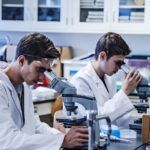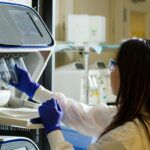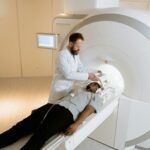Research in the field of Sport and Exercise Science at Swansea is conducted by three related research groups. These groups will give you a good idea of the sort of research that is being undertaken at Swansea, and may in turn help you to develop a research proposal in the area of economics and/or the social sciences.
- Elite and Professional Sport: Our research has impacted policy, practice and improved performance throughout the elite pathway at the very highest level. We work with a range of elite and professional sporting organisations on a diverse range of research-informed interventions focusing on pre-conditioning and recovery, parenting, biomechanics, nutrition, choking under pressure, genetics, and numerous other topics which all play an important role in achieving high levels of performance.
- Exercise Medicine and Health: The Exercise, Medicine and Health (EMH) research group strives to address the major health challenges of the 21st century, improving people’s lives through exercise science. Our group is renowned for its work in exercise physiology and physical activity and health, across the lifespan and health conditions. Our work focusses mainly on pre-natal, paediatric, older adult and clinical populations, including Type I and Type II diabetes, kidney disease, cystic fibrosis and asthma. Working in close collaboration with research students, partners, health boards and charities, our research has directly influenced national and international public health policies and clinical practices. We are at the forefront of implementing novel technological approaches to health promotion and clinical care, including advanced data analysis and data science methods. In summary, our work seeks to transform health behaviour and outcomes across the age, geographic and socio-economic range to create a healthier population.
- The Sport Ethics, Integrity and Governance research group’s growth was predicated on the successful award of 3M euros from the European Commission in 2016 to launch the world’s first MA in the field of sports ethics and integrity. We conduct high level scholarship and research into conceptual and ethical problems in sports practices and institutions. Our work spans philosophical explorations of the nature of sport and ethical problems therein, to applied multi-disciplinary work on policies and practices such as anti doping, athletes’ rights, match fixing, gender eligibility rules, technology polices, and problems at the intersection of sport, engineering and medicine. Examples of ethics, integrity and governance advice, research and consultancy in collaboration with and for key sport organisations include British Gymnastics, the European Athletes Association, the International Olympic Committee, the International Ice Hockey Federation, Sport Wales, UK Anti Doping, UK Sport the World Anti Doping Agency; and World Athletics.
Requirements
- English Language: IELTS 6.5 Overall (with no individual component below 6.5) or Swansea University recognised equivalent
- To receive WGSSS studentship funding, you must have qualifications or experience equal to an honours degree at a first or upper second-class level, or a masters from a UK academic research organisation. Students with non-traditional academic backgrounds are also welcome to apply
- WGSSS studentships are available to home and international students. Up to 30% of our cohort can comprise international students. International students will not be charged the fee difference between the UK and international rate. Applicants should satisfy the UKRI eligibility requirements
Benefits
- The studentship funded by the ESRC covers tuition fees and an annual tax-free living stipend in line with UKRI minimum rates (currently £20,780/23.875,91€ for 2025/26) and includes a Research Training Support Grant
Organization/Company – Swansea University.
Research field – Ethics in physical sciences.
Research profile – First Stage Researcher (R1).
Country – United Kingdom.
Application Deadline – 11 Dec 2025 – 23:59 (Europe/London).
More information: Euraxess







Leave a Reply